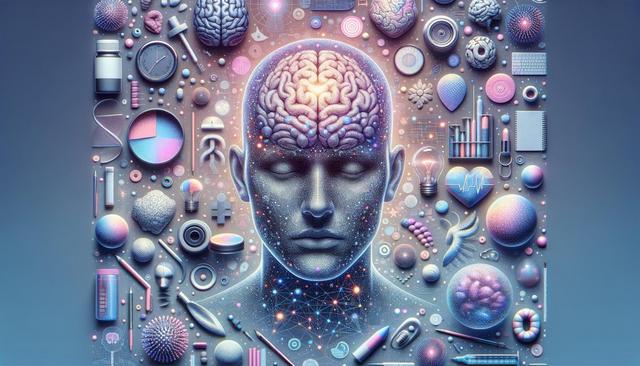The Importance of Mental Health Awareness
In recent years, the conversation around mental health awareness has grown stronger, highlighting the need to address emotional and psychological well-being just as seriously as physical health. Greater awareness helps reduce stigma and encourages individuals to seek help when they experience challenges such as anxiety and depression. Understanding that mental health is a vital part of human functioning allows people to prioritize self-care and seek support when needed.
Raising awareness can take many forms, including educational campaigns, community events, and personal storytelling. These efforts help normalize discussions around mental health and can lead to earlier intervention. When people recognize the signs of mental health struggles in themselves or others, they are more likely to take action. Some common signs include:
- Persistent feelings of sadness or hopelessness
- Withdrawal from social interactions
- Changes in sleep or appetite
- Difficulty concentrating or making decisions
By promoting mental health awareness, communities can create a more supportive environment and encourage people to pursue effective resources such as therapy, counseling, and self-help tools.
Understanding Anxiety and Depression
Anxiety and depression are two of the most common mental health conditions, affecting millions worldwide. While they are distinct disorders, they often coexist and can significantly influence daily life. Anxiety typically involves excessive worry, restlessness, and physical symptoms like increased heart rate, while depression can lead to persistent sadness, low energy, and loss of interest in once-enjoyed activities.
Recognizing the symptoms early is essential for effective management. Both conditions can stem from various factors, such as genetics, trauma, stress, or imbalances in brain chemistry. Fortunately, several strategies can help individuals cope with or recover from these conditions, including:
- Cognitive-behavioral therapy (CBT)
- Medication prescribed by a healthcare provider
- Meditation and mindfulness practices
- Support groups and peer networks
Understanding these disorders through the lens of psychology enables people to take proactive steps toward healing and resilience. It’s important to remember that seeking help is a sign of strength, not weakness.
The Role of Therapy and Counseling
Therapy and counseling play vital roles in maintaining and improving mental health. These professional services offer a safe and confidential space for individuals to explore their thoughts, emotions, and behaviors. A trained counselor or therapist uses evidence-based techniques to help clients develop coping strategies, set goals, and make meaningful changes in their lives.
There are several types of therapy that can be tailored to an individual’s needs, such as:
- Individual therapy for personal growth and problem-solving
- Couples therapy to improve relationship dynamics
- Family therapy to address group concerns and communication
- Group therapy for shared experiences and peer support
Engaging in therapy or counseling can be a transformative experience. It allows individuals to better understand the roots of their anxiety and depression, build emotional awareness, and learn practical tools for managing daily stress. Whether short-term or ongoing, these services are an essential component of a comprehensive mental health care plan.
Using Meditation and Mindfulness for Mental Wellness
Meditation and mindfulness are increasingly recognized as valuable tools for supporting mental wellness. These practices involve cultivating present-moment awareness and a non-judgmental attitude toward one’s thoughts and feelings. When practiced regularly, they can reduce stress, improve focus, and enhance emotional regulation.
Mindfulness can be integrated into daily life through simple techniques, such as:
- Focusing on the breath during moments of stress
- Engaging in mindful walking or eating
- Using guided meditations or mindfulness apps
- Practicing gratitude and self-compassion
Scientific research in psychology has shown that mindfulness-based interventions can be particularly helpful for people managing anxiety and depression. By increasing awareness of thought patterns and reducing automatic reactivity, individuals can respond to challenges with greater calm and clarity. Meditation and mindfulness complement traditional therapy and counseling, making them valuable additions to a well-rounded mental health strategy.
The Power of Self-Help and Personal Growth
Self-help books and personal development tools can empower individuals to take charge of their mental health. While not a substitute for professional care, well-researched and thoughtfully written books can provide guidance, insight, and motivation for those on a journey toward emotional well-being. Topics often covered include managing stress, building self-esteem, developing emotional intelligence, and creating healthy habits.
Some benefits of self-help resources include:
- Accessibility and convenience for learning at one’s own pace
- Practical exercises and strategies for daily use
- Encouragement to reflect and take action
- Support for ongoing personal growth between therapy sessions
Choosing books that are based on sound psychological principles ensures that the information is reliable and useful. Combining self-help with other practices—such as meditation and mindfulness, therapy, and support from friends or professionals—can lead to a more holistic approach to mental health. By investing in self-education and personal development, individuals strengthen their capacity for resilience and emotional balance.



Leave a Reply